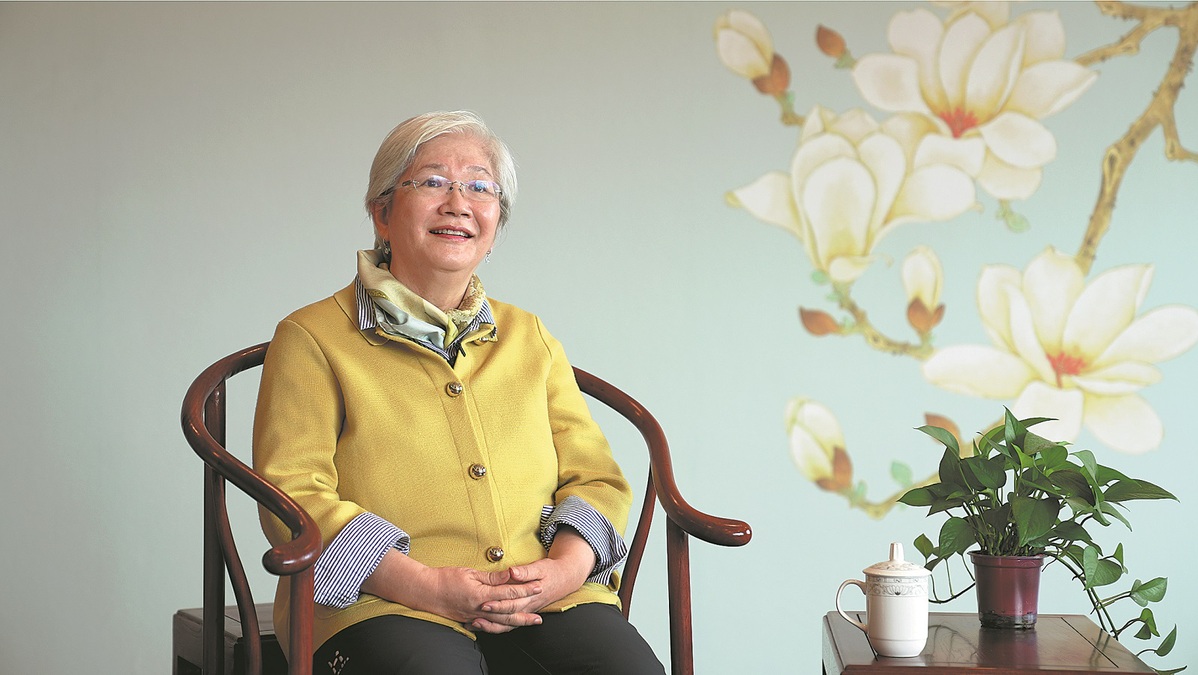Principal from Taiwan nurtures students with Chinese culture


Hsiao Yung-ray, who is from Taiwan and works as a school principal on the Chinese mainland, has dedicated herself to preserving traditional Chinese culture through education and cultivating students who are proud to be Chinese.
Born in Taipei, Taiwan, she returned to her family's ancestral home in Wuhan, Hubei province, in 2001, influenced by her father, a patriotic military officer and Wuhan native engaged in promoting exchanges between the two sides of the Taiwan Strait.
She had earlier forged a successful career in the finance industry, working for institutions such as Merrill Lynch and Chase Manhattan Bank in the United States. However, feeling unfulfilled and seeking a greater purpose, she made the decision to return to her motherland.
Having made her fortune in the real estate business, and becoming president of the Association of Taiwan Investment Enterprises in Wuhan, she turned her eyes to education.
In 2005, she established Wuhan Meiga Academy, which was affiliated with Wuhan Foreign Language School, and serves as the academy's president. It now has about 3,000 students ranging from primary to senior high school.
The school emphasizes the learning of traditional Chinese culture, including calligraphy and martial arts, alongside academic subjects, with the goal of nurturing students with both a deep understanding of their cultural heritage and a global perspective.
Hsiao criticized attempts by the Taiwan authorities to sever ties with the mainland by revising history textbooks in recent years as a betrayal of the motherland.
"The cultural bond between the two sides of the Taiwan Strait is unbreakable," she said. "Chinese will always be Chinese.… and Chinese from both sides pay respect to ancestors in festivals."
She actively engages with students, teaching them traditional Chinese classics and sharing Chinese history stories to instill a sense of pride and appreciation for their cultural roots.
"I tell Chinese history stories to students to demonstrate the value of Chinese culture and classics," she said. "Classics are lessons that the Chinese nation has accumulated from blood and tears throughout its history.
"By teaching traditional culture to children, we don't expect to cultivate masters. Our goal is to cultivate people who know Chinese culture, and be proud of our own culture and of being Chinese."
Hsiao said the results had exceeded her expectations and the students had become more willing to help others and had learned to reflect on themselves.
"Learning Chinese classics in school helps me solve many problems I encounter in life," said Wang Yitong, a seventh-grade student. "We study to make ourselves men of virtue, not to gain fame. The goal of study is not to acquire high scores, but to pursue truth."
Hsiao said she would encourage young Taiwan people to broaden their horizons, learn and consider staying on the mainland, where they would find abundant opportunities.

- Anti-corruption efforts focus more on work conduct issues
- Deeper reflections on 'cave-dwelling conversation'
- Fudan University sets AI education guidelines
- Haier ranks first in global sales for 17th consecutive year
- Norway's seafood exports hit record in 2025, China emerges as top three market
- Crucial tower of Shenzhen-Jiangmen Railway completed, marking significant milestone




































